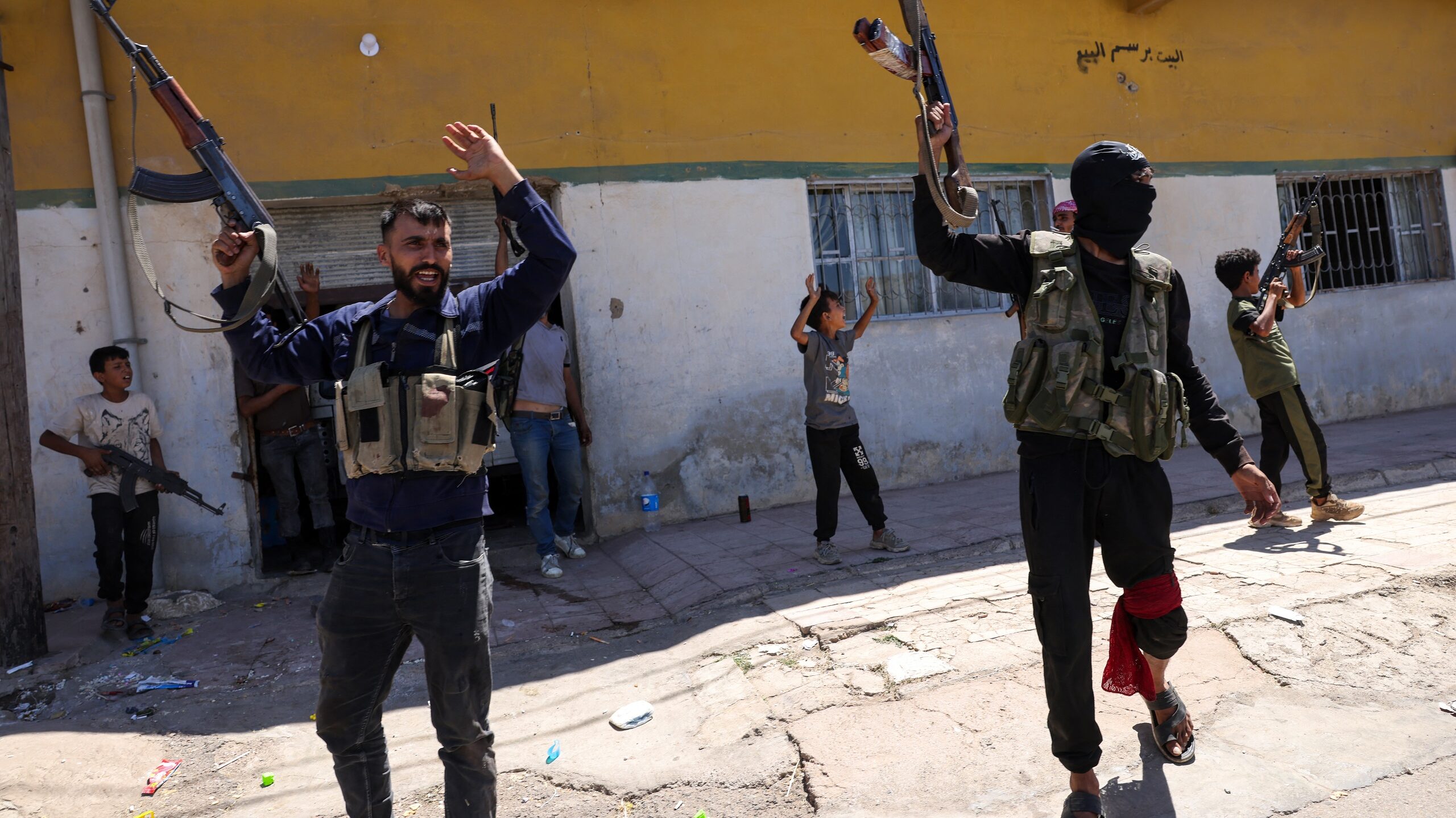Israel Strikes Syrian Forces in As-Suwayda to Protect Druze Minority, Warns of Further Action
Israel launched airstrikes against Syrian regime forces in southern Syria’s As-Suwayda province on Tuesday in a bid to protect the local Druze community from what it described as state-backed violence. The attacks came after days of deadly sectarian clashes between Druze militias and Bedouin armed groups, which escalated when Syrian troops entered the area earlier on Tuesday. Israeli leaders warned that further military action would follow if Damascus does not withdraw its forces and cease operations against the Druze.
Defense Minister Israel Katz declared on Wednesday that the Israeli military “will soon raise the level of its responses” if Syrian troops continue threatening the Druze population. “The Syrian regime must leave the Druze in As-Suwayda alone and withdraw its forces,” he said, adding that Israel would not stand by while its “brothers” across the border are harmed.
Israeli strikes targeted armored vehicles, tanks, personnel carriers, and rocket launchers deployed by the Syrian army as it moved into As-Suwayda on Monday and Tuesday. According to the Israel Defense Forces (IDF), the attacks aimed to block the arrival of reinforcements that could be used in what Israel views as punitive actions against the Druze.
The Syrian Observatory for Human Rights, a UK-based war monitor, said Wednesday that at least 248 people had been killed in the violence, including 92 Druze—21 of them executed by Syrian government forces. It also reported the deaths of 138 Syrian security personnel and 18 Bedouin fighters.
The fighting began Sunday after members of a Bedouin tribe allegedly attacked a Druze man on a main highway in As-Suwayda, prompting a wave of retaliatory violence and kidnappings. As the conflict spiraled, Damascus deployed troops to the province, claiming the move was intended to restore order. However, local Druze militias and community leaders accused the government of siding with the Bedouin and launched armed resistance.
Give the gift of hope
We practice what we preach:
accurate, fearless journalism. But we can't do it alone.
- On the ground in Gaza, Syria, Israel, Egypt, Pakistan, and more
- Our program trained more than 100 journalists
- Calling out fake news and reporting real facts
- On the ground in Gaza, Syria, Israel, Egypt, Pakistan, and more
- Our program trained more than 100 journalists
- Calling out fake news and reporting real facts
Join us.
Support The Media Line. Save democracy.
The arrival of Syrian troops did not calm the situation. Instead, civilians reported looting, arson, and field executions carried out by government forces. The Syrian government later declared a ceasefire, but reports indicated that clashes and abuses continued.
Israel reportedly issued repeated warnings to interim Syrian President Ahmed al-Sharaa through American and French diplomatic channels before launching its strikes. Foreign Minister Gideon Sa’ar told his French counterpart that “if the Syrian regime harms the Druze, they will have given us no choice but to interfere.”
Diaspora Affairs Minister Amichai Chikli, also from the Likud party, condemned the violence in harsh terms, comparing the government-led killings in As-Suwayda to Hamas’ October 7 attack on Israel. “This is the October 7th of the Druze minority in Syria,” Chikli wrote on X. He also called for the immediate assassination of President al-Sharaa, labeling him a “terrorist” and “barbaric murderer.”
The intervention in Syria has sparked domestic unrest in Israel. Dozens of Israeli Druze crossed into Syria from the Golan Heights in protest, while others staged demonstrations in northern Israel. Police closed roads and worked to maintain public order during the protests, which included tire burnings and traffic blockades.
Israel has long maintained a policy of deterrence in southern Syria, particularly regarding Iran-backed militias and hostile groups near its border. After the collapse of the Assad regime in December, Israel saw a potential opening for dialogue with Syria’s new leadership under al-Sharaa. But the recent crackdown on the Druze has led Israeli officials to question the stability and intentions of the new regime.
In response to the Israeli strikes, the Syrian Foreign Ministry accused Israel of “treacherous aggression,” blaming it for civilian deaths and vowing to defend its territory through “all means permitted under international law.”
A US official confirmed to Axios that Washington had been kept informed about Israel’s actions and later requested a halt to the attacks. Israel reportedly agreed to suspend further strikes late Tuesday night, although its leaders have maintained the right to act if the Druze remain under threat.
The Druze, who make up about 3% of Syria’s population and follow an offshoot of Shiite Islam, have long had a complicated relationship with the central government. During Syria’s civil war, Druze communities formed local militias to defend themselves from both regime forces and Sunni Islamist groups. As-Suwayda, the Druze heartland, remains largely outside full government control.
Syrian authorities have sought to integrate Druze fighters into the national army, but trust remains low, especially given al-Sharaa’s background in Sunni Islamist rebel movements linked to al-Qaida. While Damascus insists its latest operation was meant to restore order, Israeli officials believe it exposed deep sectarian fault lines and further undermined the prospects for regional stability.



